Horrific Hate Crime Reported in Zagreb Against a Gay Man
December 29, 2020 - Croatian media report today about a horrific hate crime perpetrated against a gay man in Zagreb's Maksimir Park last weekend.
Hajdi Karakaš-Jakubin reports the entire story for Jutarnji list: a 50-year-old man was taking a night walk in the Zagreb's biggest park, Maksimir, close to his home, this Saturday evening. Two unknown assailants first asked him if he had a cigarette lighter, and when he said he didn't, they started asking him various questions to find out what he was doing in the park. He started feeling uncomfortable, so he told them he was there to meet a friend (although he was just taking a walk in the evening!), and the assailants threw a Molotov cocktail on him and started running away. Soon his jacket caught on fire, and he was saved by brave passers-by, who ran to help him and contacted the emergency services.
He's currently hospitalised in the Trauma Clinic in Zagreb, with second-degree burns to his body, arms, neck, and face. Zagreb police department reported that they're determining all the relevant information about this case, but it will be very difficult to find those responsible, because they had surgical masks on, so the victim will probably not be able to identify them, even if some suspects are found.
Zagreb Pride association sent a strongly-worded letter to the Croatian media, condemning the attack. They say that they're terrified with the crime and that it's probably the worst anti-gay hate crime ever reported in Croatia. They demand a swift and decisive investigation into the crime, and that once the assailants are prosecuted, they are prosecuted for hate crime, and not a lesser crime. They also demand stronger protection for various minority groups (LGBTIQ community, Serbian, African, Romani minorities, as well as refugees and migrants) in the public spaces, which are often attacked by "right-wing gangs". They're offering their support to the victim, and are willing to provide legal and psychological help, if he wants that. They refuse the situation in which the victims of the homophobic violence get blamed for the crimes committed against them. Zagreb Pride stresses that each member of our society has the right to take a free walk in the public park for any reason whatsoever: to get some fresh air during the pandemic, to meet a friend or to set-up a date. They conclude their statement by adding that gay people are not to be blamed for anything just because they are who they are, while the right-wing gangs are to blame.
Croatia Gay Effigy Condemned: MP Files Criminal Charges Against Carnival
February 24, 2020 - MP Arsen Bauk SDP (Social Democratic Party) of Croatia has announced that he will file a criminal complaint against the organizers of the "Bakova povorka", which took place in the town of Imotski, at the local police station for burning an effigy of a gay couple. Zoran Milanović, President of Croatia, has demanded an apology from organizers and an appropriate response from the relevant legal institutions.
Numerous comments have appeared on social networks condemning the Imotski carnival (Bakova povorka), where an effigy of a same-sex couple holding a child was burned at the ceremony to widespread cheers. The child was presented in the form of SDP MP Nenad Stazić with a five-pointed star (Yugoslavia) on his forehead, according to Ana Roksandić/RTL Dnevnik on February 24, 2020.
Bauk to File Complaint Under Article 325 Croatia Criminal Code
Arsen Bauk has announced that he will file a criminal complaint against Milivoj Đuka, the organizer of the carnival parade, at the Imotski Police Station on Monday for the offense noted under Article 325 of the Criminal Code of Croatia.
There is a tradition of masks in Dalmatia, in which the people normally express their dissatisfaction with powerful political and social figures. However, the lynching of minority groups runs contrary to that tradition.
Croatia President Demands Appropriate Response for Shameful Event
Croatia President Zoran Milanović also responded to the "shameful event" on Monday morning.
"The symbolic burning of same-sex partners with a foster child in Imotski is a sad, inhumane and totally unacceptable act in the guise of the 'Bakova povorka' festivities. The organizers who staged this shameful event, in the name of tradition, deserve the strongest public condemnation because of the hatred they have demonstrated toward for others. Intolerance and inhumanity are not and will not be a Croatian tradition. I am seeking their public apology and the approptiate response reaction from the relevant institutions, especially as many children watched this event, thus witnessing the spread of hatred and inciting violence," he wrote on Facebook.
Former Croatia Prime Minister Jadranka Kosor reacted on Twitter:
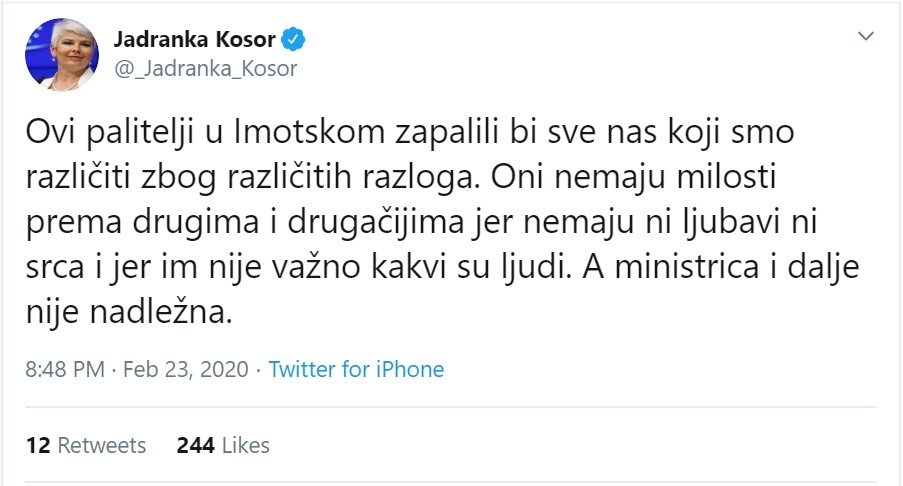
"These arsonists in Imotski would set fire to all of us who are different for various reasons. They have no mercy on others because they have neither love nor hearts and do not care what kind of people they are. And the minister is still incompetent," she wrote yesterday.
MP Bojan Glavašević also took to social networks to defend a same-sex couple, Ivo Šegota and Mladen Kožić, who want to adopt children.
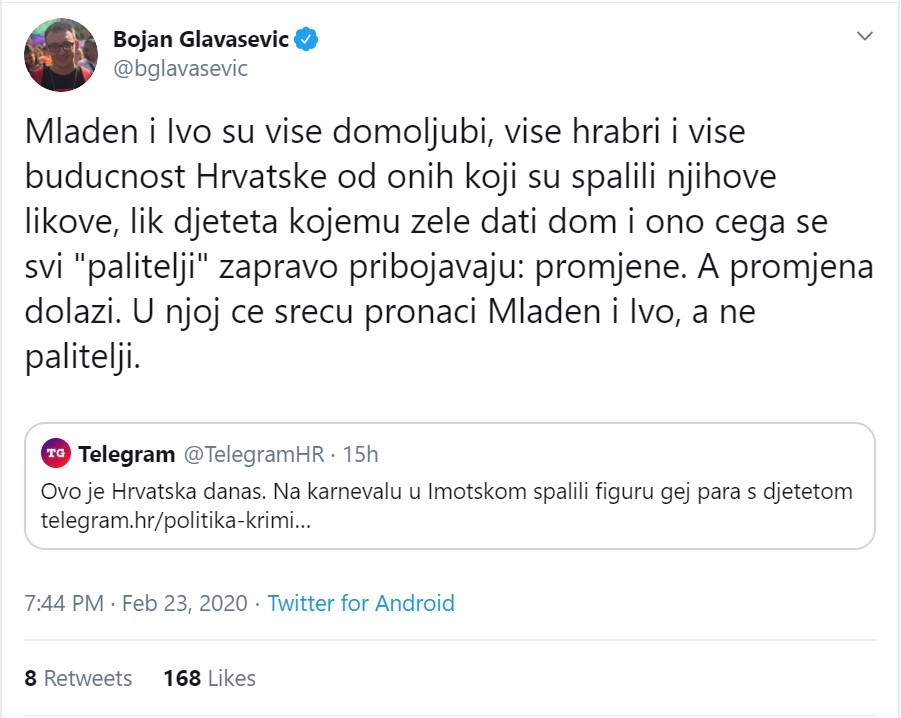
Croatia Gay Couple More Patriotic Than Imotski ‘Arsonists’
“Mladen and Ivo are more patriotic, more courageous, and more of a (positive) example for the future of Croatia than those who burned their characters, and the character of the child they wish to provide a home for. Change is what all these "arsonists" are truly afraid of. And change is coming. Within it, Mladen and Ivo will find happiness, not the arsonists,” he wrote in a Twitter post.
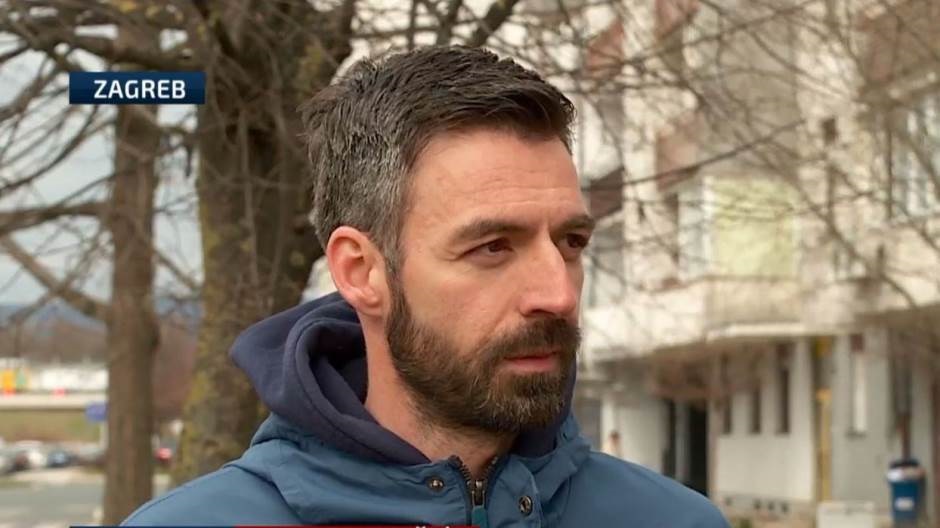
Kožić: 'I fear for all our friends who are already living with children in Croatia'
Mladen Kožić spoke to Hrvoje Krešić/N1 on Monday:
"This time I feel bad not only for myself, I am not afraid for either Ivo or myself, I fear for all our friends who are already living with children in Croatia," Kožić said.
"We know two fathers with a daughter in our first neighborhood and I feel bad for them because I cannot imagine how it must be for them now, and how they will explain to their children what exactly has happened," he added.
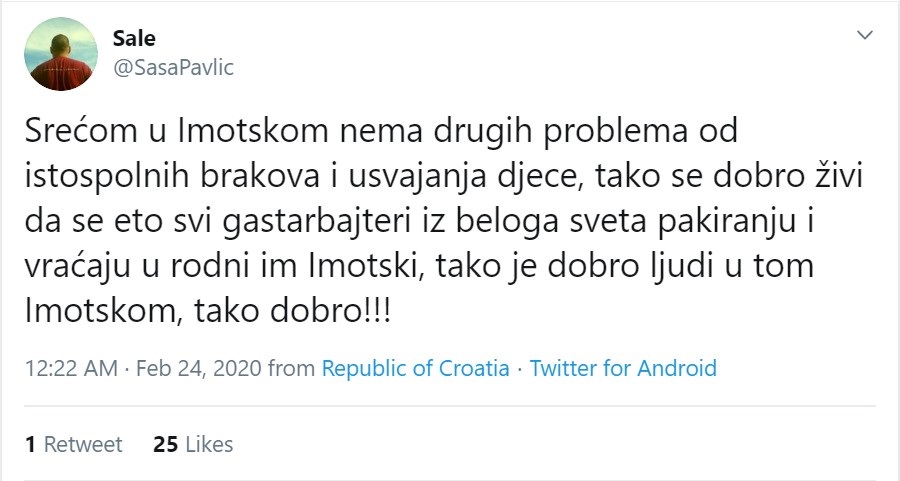
"Fortunately, there are no other problems in Imotski other than same-sex marriage and adoption of children, people are living so well there that all the gastarbeiters from this white world are packing and returning to their native Imotski, the people in Imotski have it so good, so good !!!", one Twitter user observed sarcastically. Milivoj Đuka, the parade's organizer, spoke to Dnevnik/HRT about the mass exodus from his hometown on June 21, 2015.
Interview with Đuka begins at 1:05.
Young Croatians Fleeing Imotski, Living Among Same Sex Couples Abroad
Thousands of young Croatians are fleeing to countries like Ireland, Sweden, Denmark, Germany and Austria where gay marriage and adoption are legal, and are living among openly gay and lesbian couples with children.
Another user emphasized that, according to carnival tradition, culprits should be burned for adverse behavior, not for adopting a child.
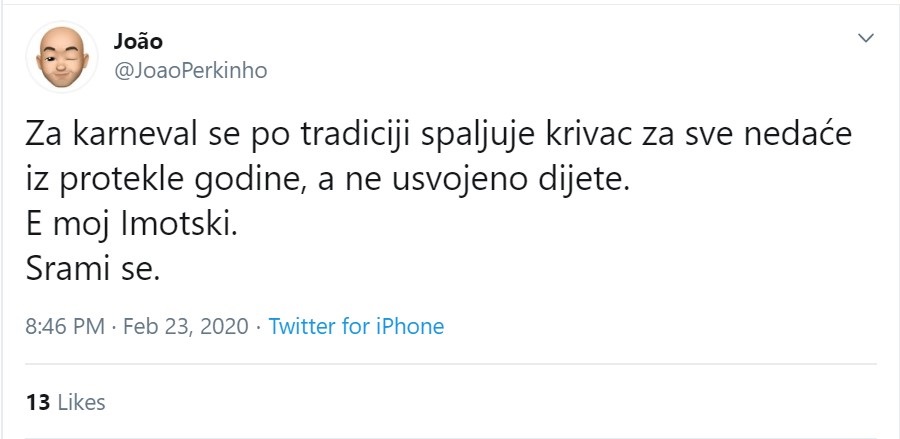
“According to tradition the carnival is traditionally an event to set fire to the culprit for all the troubles of the past year, not an adopted child.
My Imotski. Shame on you,” the user responded.
Act of hate speech?
Another user wondered if the gay couple effigy burning at the Imotski carnival was an act of hate speech.
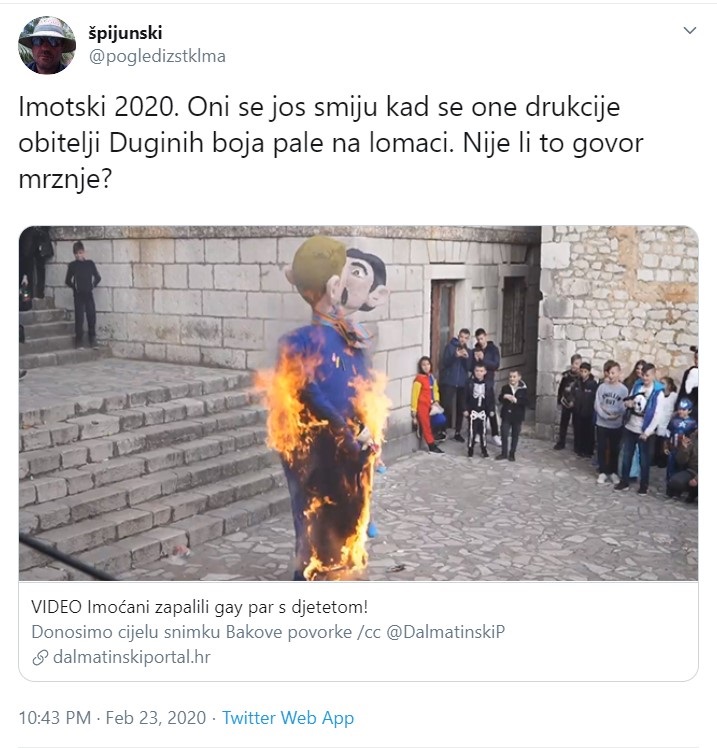
“Imotski 2020. They are still laughing when these alternative families of Rainbow colors fall into shambles. Isn't this hate speech?” the Twitter user asked.
The effigy of the gay couple is set on fire at 1:41:15 | Boško Ćosić Photography
See yesterday's Total Croatia News article about the effigy burning here. Follow our Politics page, Lifestyle page and this page for updates on this story and the state of LGBT rights in Croatia.
Croatia Town Burns Gay Couple Effigy at Parade: Imotski Residents Cheer
February 23, 2020 - Bakova povorka, the pinnacle of a 150-year tradition of carnival festivities in Imotski, Croatia was engulfed by scandal on Sunday afternoon when enthusiastic residents set fire to an effigy of a gay couple to widespread cheers.
Adopted Child Had Yugoslav Star on Forehead
Imotski residents chose to feature a gay couple with an adopted child, which had a five-pointed star on his forehead (resembling that of the Yugoslav flag) for the central carnival figure. They eventually set that effigy on fire and burned it to the ground to the cheers of onlookers.
“Like it or not, but this is abnormal for us, but everyone has the right to be whatever they want,” they proclaimed to onlookers.
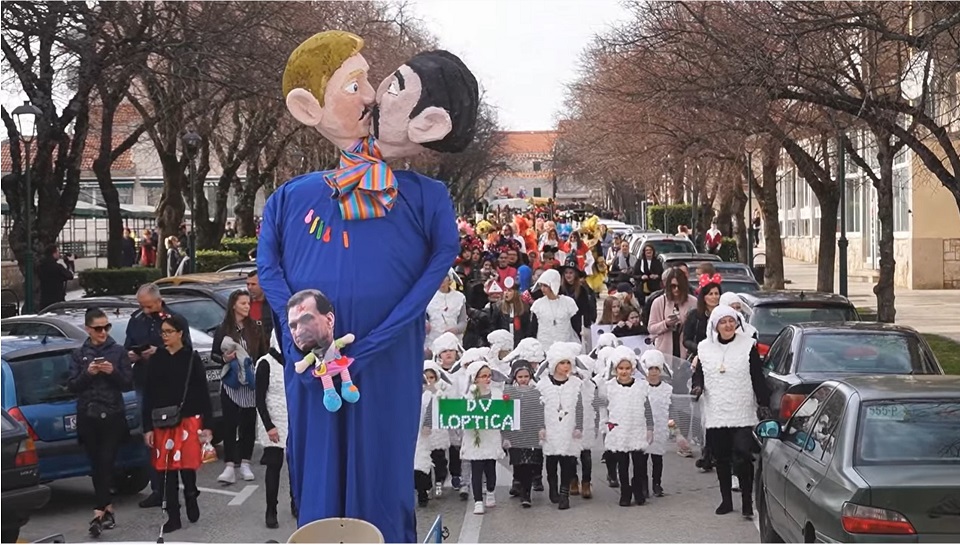
It’s also worth noting that the child doll, with the five-pointed star on his forehead and being held by the effigy of the gay couple, had the face of SDP (Social Democratic Party) MP Nenad Stazić. Earlier this year, it Stazić lent his support to same sex couples wishing to be foster parents. He also indicated that children were more at risk in the company of pedophile priests than under the care of openly gay foster parents. The effigy of the gay couple was followed by a group of children from the local kindergarten in the parade.
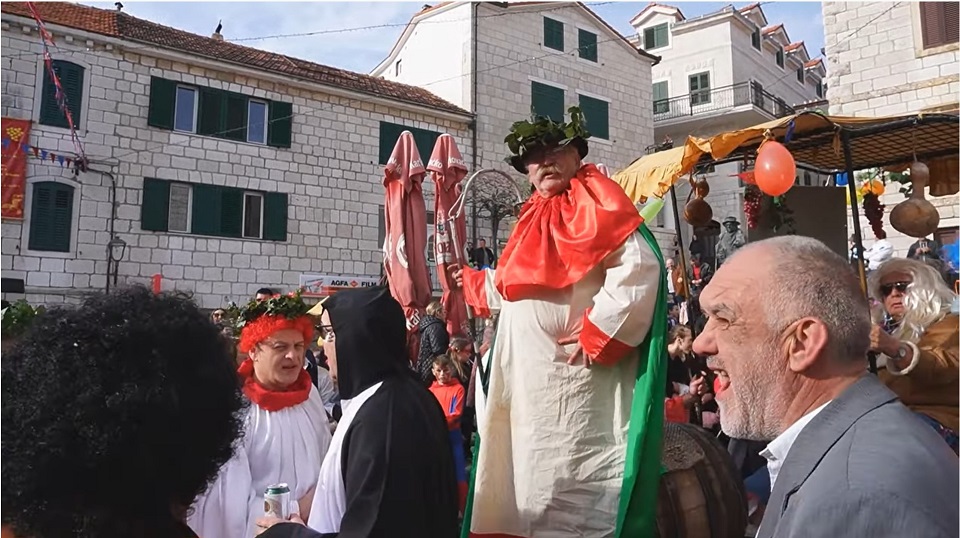
‘We are a conservative society’
"My head is spinning from this culture of death, and since my body is ailing, this year let’s set this grotesque family with baby Nenad Stazić on fire," the announcer proclaimed. Then, “Play the music" was heard as they ignited the effigy to wild cheers and applause.
When Slobodna Dalmacija asked Milivoj Đuka, president of the "Bako Ceremony Cultural Society" (KD Bakove svečanosti), for comment on February 23, 2020; he explained:
“We are a conservative society, and are sticking by tradition. Give a child to a mother, as the saying goes. We think this is the right thing to do,” Đuka claimed.
In an interview for Imotski Online on February 7, 2020; the festival's organizer had previously indicated that the main character of the parade would remain a secret.
"I can't reveal it to you. I can only say that everyone will understand who and what it is about," Đuka pointed out.
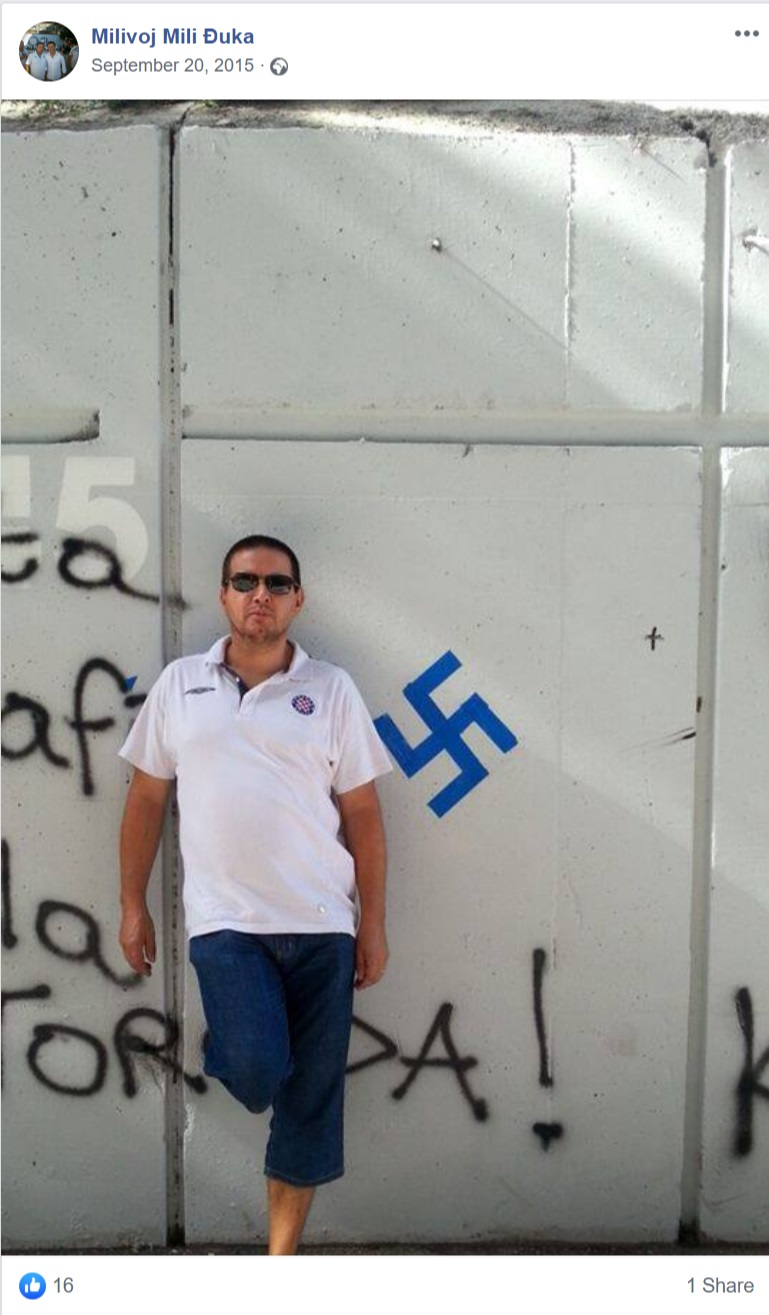
Milivoj Đuka | Facebook
According to a recent poll conducted by HRT (Croatia Radio Television); 63.7 percent of respondents are against allowing same-sex couples to be foster parents.
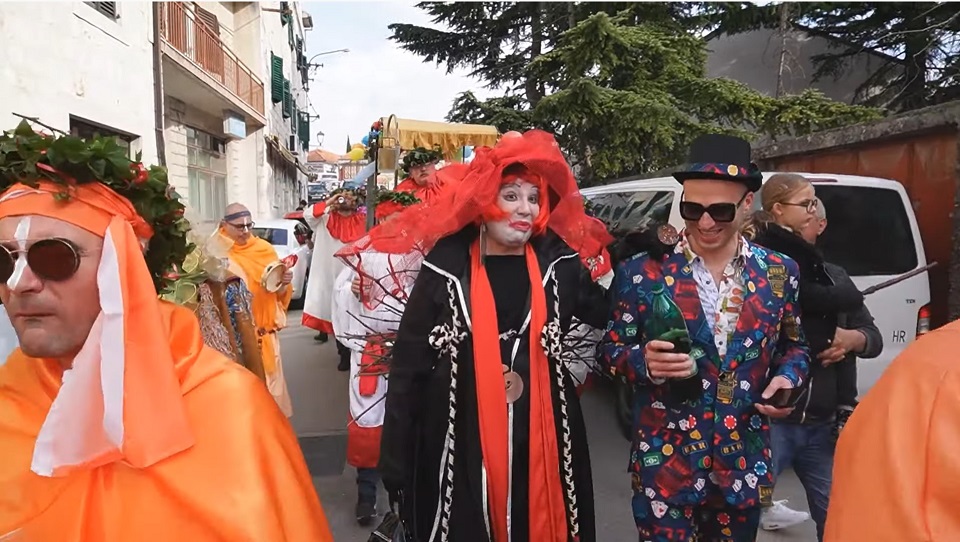
Croatia Parade Included Masks of Elvis Presley, Cleopatra, Josipa Lisac
Đuka made sure that there were as many masks as possible in the parade, all of which were made in homes throughout the town. Visitors also saw Nutcrackers, Cellists, Elvis Presley and his band, Flowers as well as individual masks of Cleopatra, and Pirates. In addition, there were homemade renderings of Croatia diva, Josipa Lisac, inspired by her performance at the inauguration of the new President.
The parade featured groups of children dressed like little lambs from the Kindergarten Ball, students from Imotski elementary schools, and many others.
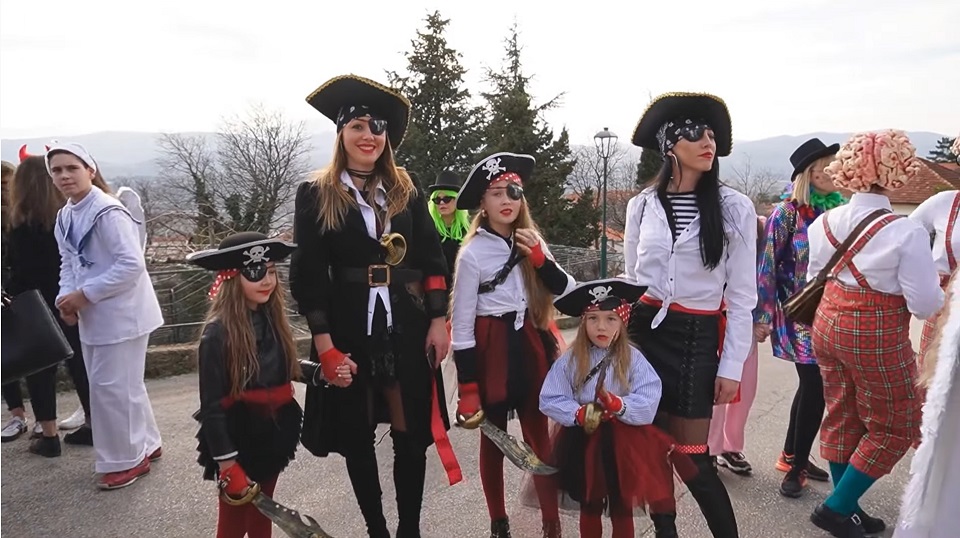
Members of the HPO Gradske glazbe Imotski (HPO Imotski Town Music Group), performed cheerful carnival songs for more than a thousand Imotski residents and their guests.
The effigy of the gay couple is set on fire at 1:41:15 | Boško Ćosić Photography
UPDATE February 24, 2020: Croatian leaders and citizens condemn effigy burning. MP Arsen Bauk files charges against event organizers.
Follow our Lifestyle page for updates on this developing story. More information on the "Bako Ceremony Cultural Society" (KD Bakove svečanosti) can be found on their website here and Facebook here.
Croatia Constitutional Court: Same Sex Couples Can Be Foster Parents
The Croatia Constitutional Court has decided: same-sex couples in Croatia have the right to be foster parents on the same terms as everyone else.
Croatia Court Decision Gives Same Sex Couples Foster Parent Rights
Croatian courts and other competent authorities are required to allow same-sex couples to provide foster care on the same terms as other qualified applications. The Constitutional Court decided this by evaluating as many as eight proposals and requests to review the constitutionality of the Foster Care Act and its provisions for removing same-sex persons living in formal and informal life partnerships from the circle of potential foster parent applicants.
The Constitutional Court did not repeal the challenged legal provisions, arguing that this would create a legal loophole, but stated unequivocally that the exclusion of same-sex couples from foster care was discriminatory and unconstitutional, and provided clear instructions to the courts, social welfare centers and other decision-making bodies regarding these issues and indicated they must not exclude applicants based on their life partnership status.
High Court Found That Legal Provisions ‘Silenced’ Same Sex Partners
“The Constitutional Court found that the impugned legal provisions which left out (‘silenced’) a certain social group produces general discriminatory consequences against same-sex persons living in formal and informal life partnerships, which is constitutionally unacceptable,” points out in the summary of the Constitutional Court's decision.
It is further stated that discriminatory effects cannot be eliminated or replaced by the intervention of the Constitutional Court in the existing content of the law according to Ivanka Toma/Jutarnji List on February 7, 2020.
“Namely, the Foster Care Act has a legitimate purpose - the protection of the interests and well-being of socially disadvantaged persons - and in this respect is not in conflict with the constitution. The mere repeal of the impugned legal provisions would lead to a gap in the existing model of public foster care service and would have adverse consequences for the rights and interests of foster care users. Therefore, the Constitutional Court did not accept the proposals and the request for review of conformity with the constitution of the disputed articles of the Foster Care Act,” their decision reads.
Constitutional judges stressed that, despite not intervening in the legal text, "courts or other competent bodies that directly decide on individual rights and obligations of citizens in resolving individual cases are obliged to interpret and apply laws in accordance with their meaning and legitimate purpose, to make those decisions on the basis of the constitution, laws, international treaties and other sources of law."
“In the present case, this means that the impugned legal provisions are obliged to interpret and apply in a way that will enable all persons under equal conditions to participate in public foster care service, regardless of whether the potential foster parent lives in an informal or formal life partnership,” according to the Constitutional Court's unambiguous message.
Constitutional Court President Miroslav Šeparović says the Kožić-Šegota case, in which the Administrative Court gave them the right to be foster parents, and the Social Welfare Center’s refusal to enforce the court's decision had had no bearing on their decision.
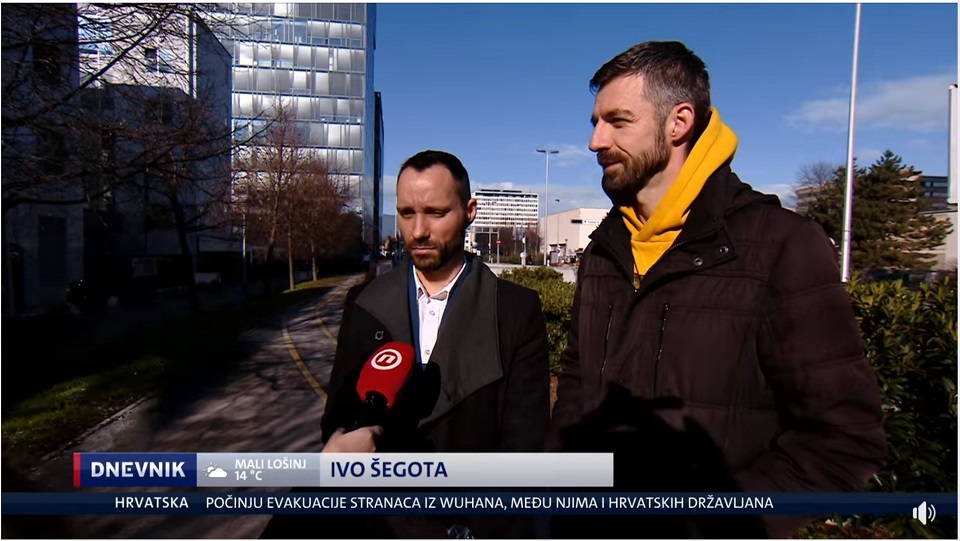
Gay Life Partners Ivo Šegota and Mladen Kožić in January after second foster care rejection. | Nova TV
Administrative Court Decision Did Not Influence Constitutional Court Decision
“The Constitutional Court has been reviewing this law for several months and the decision of the Administrative Court in no way influenced the decision of the Constitutional Court. But we have indicated that courts and administrative bodies are obliged to act in accordance with the Constitution and international regulations and must interpret laws so that no social group is discriminated against,” added Šeparović.
Regarding the Kožić-Šegota case, he pointed out that the Social Welfare Center should have acted on the decision of the Administrative Court which allowed the couple to be foster parents without this Constitutional Court decision. However, the Constitutional Court decision further obligates them to honor the lower court’s decision, and notes that this same-sex couple must not be discriminated against and that they can be foster parents on the same terms as anyone else who meets the legal requirements.
Ivo Šegota and Mladen Kožić, who are gay life partners, applied to the Social Welfare Center to become foster parents three years ago. After rejecting their application, the center explained that the couple cannot foster children because the law does not allow them to do so as life partners. Last December, the Administrative Court handed down a historic verdict which stated that life partners could be foster parents. However, their request was rejected again by the Social Welfare Center in January.
The President of the Constitutional Court recalls that, under the Constitutional Act of the Constitutional Court, Constitutional decisions must be enforced, and the government is obliged to ensure compliance.
“The point of this decision is that opportunity to provide foster care service must be given to everyone under the same conditions, regardless of whether the potential foster parents are of same-sex orientation. This does not mean that they are privileged, but their foster care must be allowed if they meet the legal requirements,” explained Šeparović.
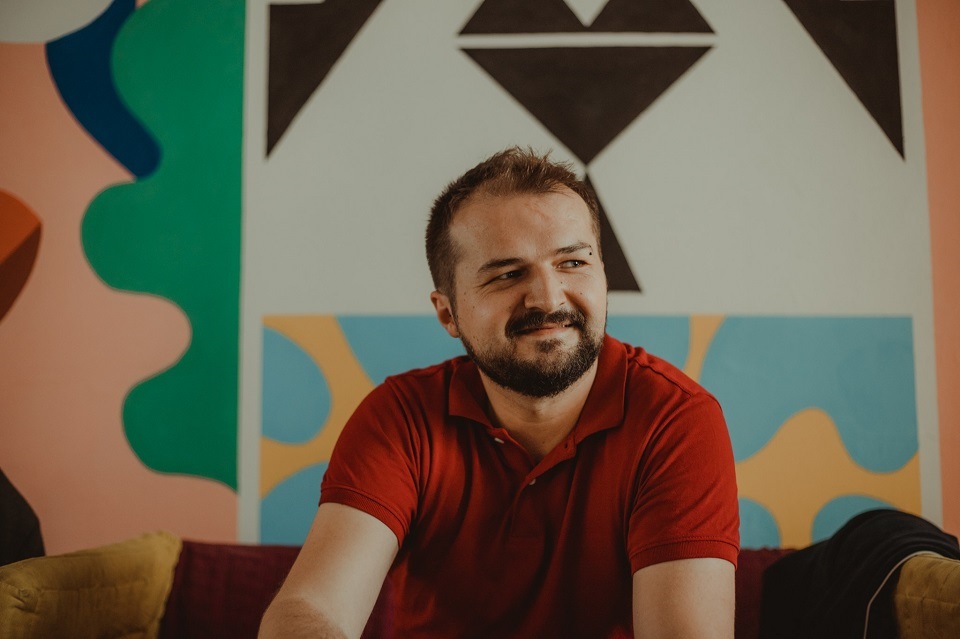
Daniel Martinović | Coordinator for Dugine obitelji (Rainbow Families)
Dugine Obitelji (Rainbow Families) Official Statement
Daniel Martinović, Coordinator at Dugine obitelji (Rainbow Families), released the following statement:
“Today's Constitutional Court decision states that the Foster Care Act must be interpreted to include life partners as equals as other foster parents, and that this is the only correct interpretation of the act.”
“The decision recognizes and prevents discrimination against life partners in the future and does what politicians in Croatia have not accomplished for years. This is a positive leap forward for the equality for all citizens of the Republic of Croatia, regardless of their sexual orientation or gender identity.”
“The LGBT community has once again fought for its rights alone, persistently and together. Our courage and insistence on a fairer society can hopefully be a milestone for other marginalized groups in our society.”
Croatia Constitutional Court Decision Ends Three Year Court Battle
Information on the December 2019 court decision can be found here. Details about the Social Welfare Center’s January 2020 rejection of the couple’s second foster care application can be found here.
A history of the couple's efforts to become foster parents and information on the LGBT rights movement in Croatia can be found here.
To learn more about the efforts of Rainbow Families (Dugine obitelji), check out their website and Facebook page.
The Croatia Constitutional Court decision (in Croatian):
Odluka Ustavnog suda o udom... by Index.hr on Scribd
Croatia Gay Couple Foster Care Application Rejected: Court Decision Ignored
The Social Welfare Center in Zagreb again rejected the foster care application submitted by Ivo Šegota and Mladen Kožić, who are life partners in Croatia. By doing so, they have completely disregarded the Croatian Administrative Court's December 2019 binding judgment, which allowed the couple to become foster parents after a long two-year court battle.
UPDATE: Mladen Kožić and Ivo Šegota give interviews to RTL Direkt and HRT on January 28, 2020. More information here.
Couple Had Started Preparing Home for Children
“We're shocked. After the December verdict, we had started planning how we would prepare our home for children, and I had already announced to my boss that, as soon as children arrived, I would be taking a long-term unpaid leave. And then a decision from the center arrives stating that they will not respect the court's decision. For the first half hour I kept saying, "But how is this possible?" And then I reminded myself that this is another small obstacle that Ivo and I will have to overcome together. We’ll go forward patiently and continue learning and developing our parenting skills. Giving up is not an option,” said Mladen Kožić. He added that he will appeal this unexpected decision, which came with an even more unexpected explanation, with his partner. In fact, the decision literally states that "this body could not arrive at a decision that is based on the application of legal provisions but is based on the opinion of the court."
Šegota and Kožić applied to the center in 2017 with to become foster parents. The center began the procedure, the partners passed the required screening tests and received a positive assessment, which was followed by compulsory education for foster parents and obtained their license. But instead, the center suddenly informed them that "there are no legal prerequisites for initiating the licensing process because they are in a life partnership," and life partners are not expressly listed in the Foster Care Act as possible foster parents. However, singles, spouses and extra-marital partners are listed, as reported by Kristina Turčin/Jutarnji List on January 28, 2020. They couple submitted a complaint to the ministry, which confirmed the center’s decision, and then they initiated an administrative procedure.
Croatia Court December Decision: Couple Can Become Foster Parents
At the end of December, the Croatia Administrative Court issued a judgment that could no longer be appealed, annulling the earlier rulings, and returns the case to retrial. However, the judgment was more than clear. Total Croatia News reported this court decision on December 20, 2019.
“By a meaningful interpretation of the legal provisions in their interconnectedness, the foster family, in the court's view, may include the foster parent and his or her life partner. The legislator did not prescribe a specific sexual orientation anywhere, so it is not logical that a single person having the same sexual orientation as the plaintiffs would be issued a foster care license if he/she fulfills the legal requirements. In this case, the legal requirements (for providing foster care) were not even examined in case of the plaintiffs because of the belief that life partners cannot be foster parents,” the Croatia court ruling read.
“As the respondent deems that the defendant applied an exclusively formalistic or grammatical interpretation of the relevant provisions of the foster care law, without interconnecting them and interpreting them in accordance with their meaning and purpose; the first instance body (Social Welfare Center) will reopen the foster care application process and decide to grant permission solely on the merits of the plaintiff's request,” the judgment ordered.
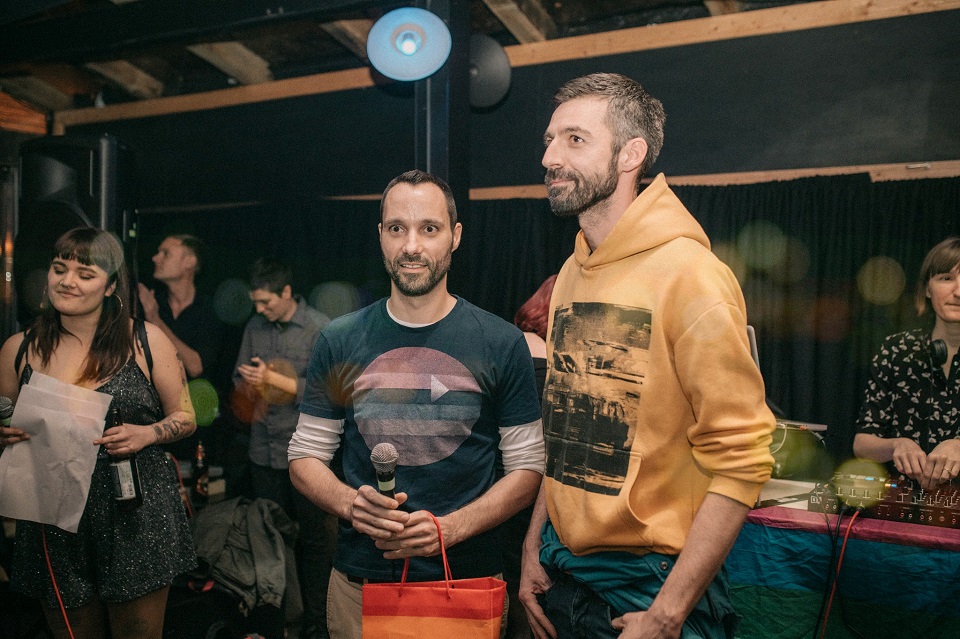
Ivo Šegota and Mladen Kožić | Facebook
Zagreb Social Welfare Center Denies Couple’s Application Again
However, the center issued the same decision as if there hadn’t been any judgments at all. Jutarnji List has not received an answer regarding the center’s decision because "CZSS (Social Welfare Center) Zagreb cannot provide details on proceedings in order to maintain official and professional secrets, respect the principles of secrecy, protect personal data and out of respect for privacy." The Ministry of Demography, Family, Youth and Social Policy would not comment and were surprised by Jutarnji List’s inquiry.
“Not only can we not comment on the decision of the center, but we are not aware of the fact that a new decision was made,” the ministry stated yesterday.
Zagreb Couple Must Appeal Decision Second Time
Šegota and Kožić must now go through the same procedure again, and an appeal of the center’s decision will be sent to the Croatia Ministry of Demography again.
“That's our next step. If the appeal is not upheld, we will return to the Administrative Court and ask that the court decide on its own and not return the proceedings to the beginning. These decisions by lower administrative bodies, which do not comply with binding judicial decisions, do not contribute to the rule of law. On the contrary, they insult the fundamental value of the constitutional order,” says lawyer Sanja Bezbradica Jelavić, who represents Šegota and Kožić.
“State institutions should adhere to court decisions,” says Gender Equality Ombudsperson Višnja Ljubičić.
Đuro Sessa: 'The decision of the center is not illegal, but it must have strong reasoning.'
The Zagreb Social Welfare Center may, in principle, issue the same decision that was reached previously since the court annulled that previous decision and sent the entire proceeding for reconsideration, explains Djuro Sessa, the Chief Justice of the Croatia Supreme Court.
“The court ruled that the case was going back for retrial. The court had the opportunity to resolve the issue on its own; not to seek a retrial but to replace the decision of the Social Welfare Center with its decision instead. The court could have decided to accept that the plaintiff's request, but they did not do so. Therefore, the center could arrive at the same decision, but the rationale for the decision should have been far more thorough,” Sessa adds.
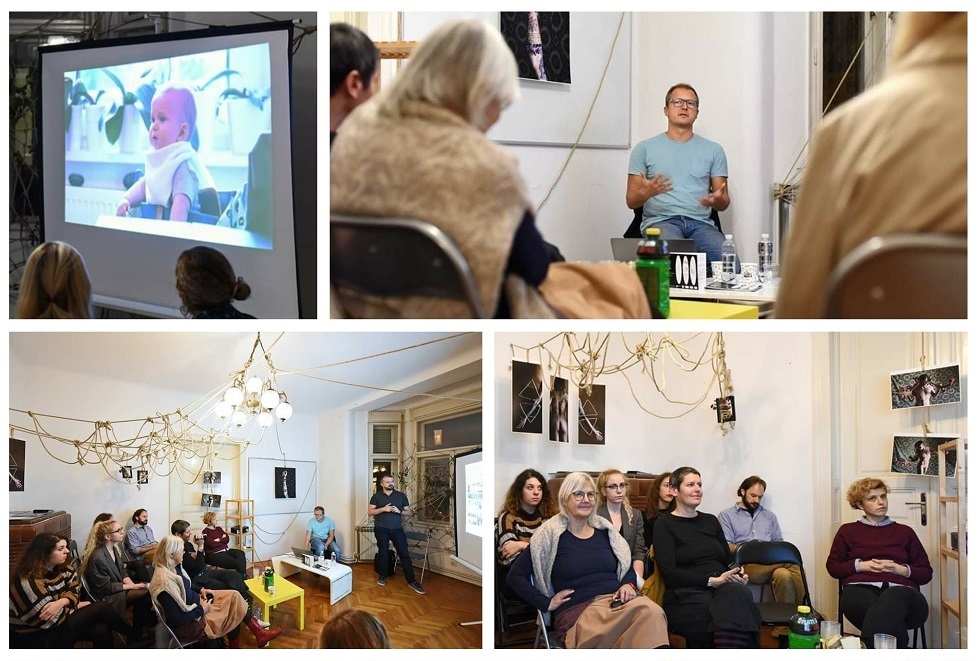
Rainbow Families | Facebook
Croatia Based 'Rainbow Families' Releases Statement
Rainbow Families (Dugine obitelji), which brings together LGBTI parents and those who wish to become parents in Croatia, released a statement today. It is printed below in full.
“It is unacceptable that the rule of law does not function in Croatia, which currently holds the EU Presidency and that court judgments are not respected.”
“The Administrative Court ruled in December 2019 that Ivo Šegota and Mladen Kožić, life partners who wish to become foster parents, have full rights in their intent. The ruling also indicated that they must not be discriminated against in these proceedings. The Social Welfare Center in Zagreb disregarded the court judgment and again rejected the foster application submitted by Mladen and Ivo. Rainbow Families, which brings together LGBTI parents and those who wish to become parents, consider the center’s actions outrageous. The center is acting as if the Administrative Court's judgment does not exist.”
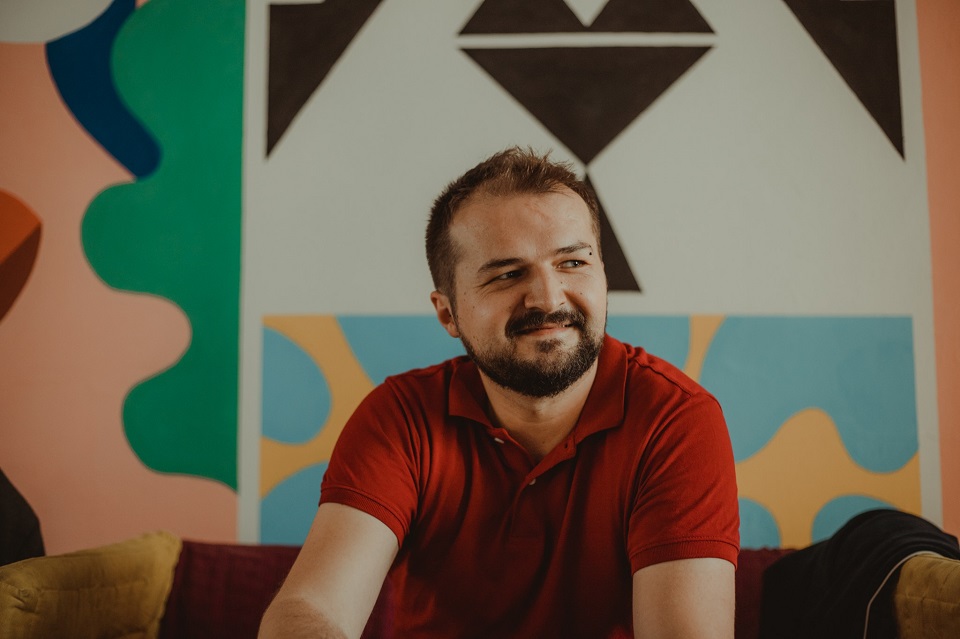
Daniel Martinović | Rainbow Families
“’This situation was already unbelievable, and it would be ridiculous if it weren’t so sad. The December 2019 decision of Administrative Court gave all of us, who believe in equality and respect for human rights, hope that there is a better future for our society. Since then, we have received an incredible number of messages of support regarding the December court verdict confirming our members, Ivo and Mladen, have the right to become foster parents. People have been stopping them on the road and congratulating them. And now we must witness this reckless, unthinkable, and more importantly, illegal conduct of the Social Welfare Center. What would the Social Welfare Center look like if it ignored the court's decision, for example, and allowed an abusive parent access or information about a child?’” Daniel Martinović, coordinator of Rainbow Families, pointed out.
"Our politicians are constantly heaping praise on our country simply because it currently holds the Presidency of the Council of the European Union. We are also told repeatedly about what a great honor it is for all of us, how proud we can all be of Croatia, how it is proof that we stand side by side with other EU countries. It hasn’t not even been a month since that famous presidency began, and we already have countless examples of where that all falls into the water. We consider this the worst example so far because it shows that institutions in this country do not respect the rule of law or court judgments, which is unthinkable in countries like Germany, Belgium or France."
"Life partners Ivo and Mladen will appeal to the Croatia Ministry of Demography regarding the center’s decision. If the ministry does not accept that appeal, they will go back to the Administrative Court and ask the court to make its own decision. Judging by the first ruling of the Administrative Court, they are fully entitled to become potential foster parents, and legal experts are already warning of the problematic situation the center's decision (last week) will create."
"Basically, in the first decision, the center rejected Mladen and Ivo’s application. However, they did not correctly apply the legal provisions of the Republic of Croatia, and when they were corrected by the relevant court, which rendered a binding decision, they interpreted the court's judgment as 'an opinion' which is not binding, and thus refused to correct their own misinterpretation of the law."
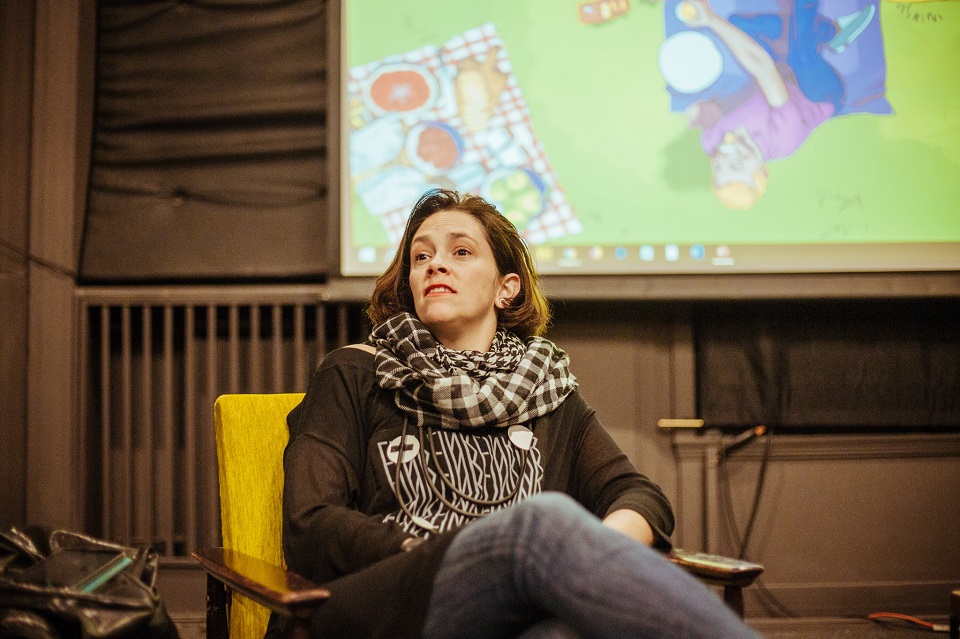
Zrinka Bojanić | Rainbow Families
"'The center’s disregard for the ruling of the Administrative Court causes great legal uncertainty and is harmful LGBTI citizens who are protected by several Croatian laws and European case laws. The judgment clearly instructed the center to decide on the merits of the plaintiffs' request, but they rejected that request, which is contrary to the judgment. They have demonstrated that they do not want to act on the couple’s request to become foster parents, which they submitted back in 2017. If this case is brought before the European Court of Human Rights, there is a very good chance that Croatia will again be forced to respect all its citizens equally and grant them equal rights on equal terms,'" explained attorney Zrinka Bojanić, an associate of Rainbow Families.
Mladen Kožić and Ivo Šegota | Press Conference | December 21, 2019
A history of the couple's efforts to become foster parents and information on the LGBT rights movement in Croatia can be found here.
UPDATE: Mladen Kožić and Ivo Šegota give interviews to RTL Direkt and HRT on January 28, 2020. More information here.
Croatia Court Decision: Gay Couple Allowed to be Foster Parents
For the very first time in Croatia, a Zagreb court rules that same-sex married couple Ivo Šegota and Mladen Kožić have the right to be foster parents, and the Ministry of Demography, which rejected their request to provide foster care last year, must implement the new decision within 60 days, this time in accordance with domestic and international legislation.
It stems from yesterday’s decision by the Zagreb Administrative Court, which annulled previous decisions including the refusals of the Center for Social Welfare and the ministry, according to Kristina Turčin/Jutarnji List on December 19, 2019.
Croatia Court Decision Final: No Appeal Allowed
“The court's decision is binding, and an appeal is not allowed, so this judgment is final. The written ruling has not yet arrived, but as stated during the announcement, the court accepted our argument in the lawsuit, based on Croatian regulations and the European Convention on Human Rights. As a result, the court ordered the relevant government agencies to implement the new decision in accordance with the judgment. We believe that the agencies will respect the court decision,” stated Sanja Bezbradica Jelavić, the attorney representing Ivo Šegota and Mladen Kožić.
“We are overjoyed. As we told the judge, this is the Christmas gift we didn't dare hope for,” Šegota revealed.
In 2015, he and his partner Mladen Kožić were among the first couples to enter a life partnership after the Life Partnership Act was passed in Croatia. Their desire to grow their family and raise children has existed for a long time.
Request to Adopt Rejected: Court Case Pending
“We have wanted to be parents for a long time. Therefore, shortly after our partnership ceremony, we submitted a request to the Center for Social Welfare to become adoptive parents, but were rejected immediately, which is why we have also initiated a lawsuit in the Zagreb Administrative Court, which is still pending,” according to Šegota.
They were not discouraged and started considering other options, such as foster care.
“We gave it a lot of thought. We are aware that this is temporary, rather than permanent childcare, and that foster parents are not adoptive parents, but we have concluded that this option is still a dream come true,” he continues.
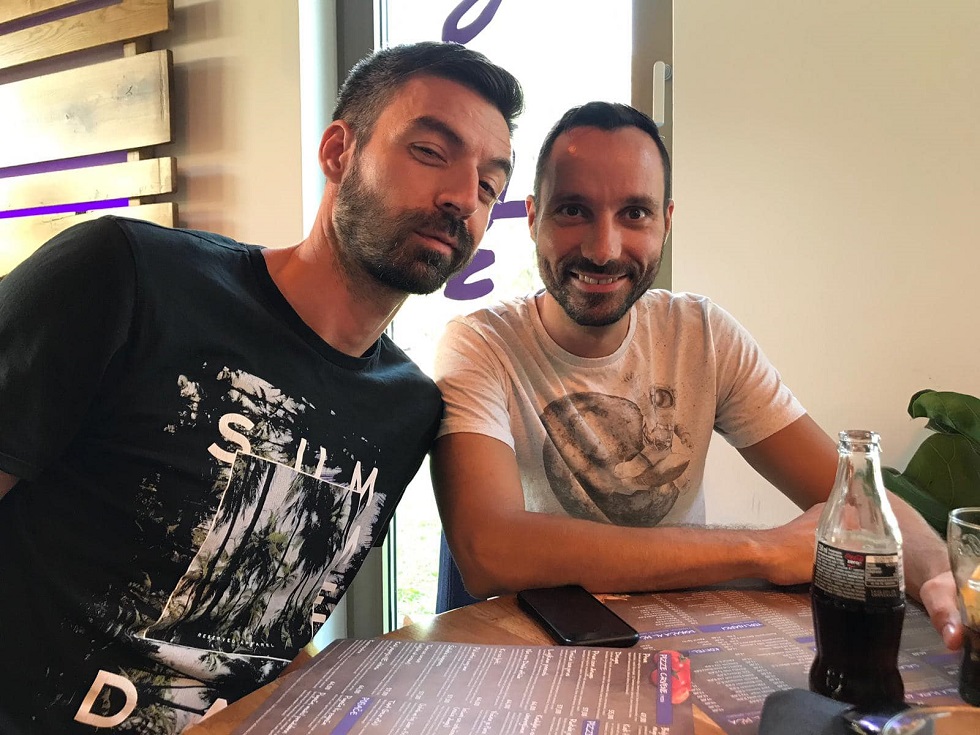
Applied to Become Foster Parents as Adoption Alternative
Therefore, Šegota applied with his life partner Mladen Kožić to the Zagreb branch of the Center for Social Welfare to become foster parents in the summer of 2017.
“Our application was very well received, especially by the psychologist and the social worker, who were particularly pleased when we announced that we were interested in fostering two or three children. Zagreb lacks foster families, especially those with the capability and desire to foster more than one child, which is why the centers are often forced to separate biological brothers and sisters,” he explained.
They both underwent an extensive psychological assessment process, during which they performed parenting skills tests, interviews, and discussed their motives for becoming foster care providers. A social history evaluation was also performed to assess their environment and family support network.
Center Rejects Foster Application Even Though Requirements Met
“We completely satisfied the requirements, received a positive assessment and everyone seemed pleased that this was happening. However, suddenly the center stopped contacting us. After the positive evaluation, we should have begun compulsory foster care training, which would have been followed by obtaining a foster care license. Suddenly, we could no longer get a response, and then in early December 2017, we were informed in writing that there were no legal prerequisites for initiating the licensing procedure because we are in a life partnership,” Šegota recounted.
They were very disappointed, he says, because after the initial response, they had hoped everything would be okay. After all, the Life Partnership Act clearly states that life partners are supposed to be legally on par with heterosexual spouses. As lawmakers have often pointed out, the only right that can be challenged is joint adoption of children - but not foster care, which is a profession and does not imply permanent childcare.
“We immediately submitted complaints to the Ministry of Demography about the center’s decision, but they rejected our appeal. We had no option but to institute legal proceedings,” they concluded.
Discrimination Lawsuit Initiated in July 2018
Their lawyer Bezbradica Jelavić initiated the lawsuit in July 2018. She noted that the center had begun the official evaluation of Šegota and Kožić in accordance with the Foster Care Act, but despite conducting a full procedure, which lasted four months, the center eventually rejected their request "because of a lack of legal presumptions.”
"Such a sudden detour in the evaluation process led us to the conclusion that there was a directive from above to treat these applicants differently. Considering the abrupt termination of the proceedings which were already underway, and even though the plaintiffs had met all the legal requirements, it's obvious that the Center for Social Welfare's treatment of the applicants was discriminatory due to their sexual orientation." The lawsuit further outlined the plaintiffs’ right to equal treatment and family life according to the law. National regulations, the constitution and international treaties guarantee the prohibition of discrimination as specified by the Convention for the Protection of Human Rights and Fundamental Freedoms.
"The plaintiffs state that they became aware that the Center for Social Welfare had abruptly discontinued another foster care evaluation involving life partners. This case, which had reached a later stage in the assessment, indicated that discrimination against same-sex couples exists within the organization," the lawsuit concludes, and cites several judgments from the European Court for Human Rights regarding similar cases, which were decided in favor of same-sex couples.
Well-Being and Interest of Children Should Come First
In the lawsuit, they also cautioned that the sole focus of the foster care profession should be the interest and well-being of children, not the sexual orientation of the foster parents, especially given the fact that the demand for foster parents is extremely high.
"Thus, by rejecting the request for foster care, the Center for Social Welfare in Zagreb violated not only the applicant's fundamental human rights, but also the right of a child or more children to quality accommodation and care, which they would receive in a stable family setting." According the center’s own evaluation, Šegota and Kožić demonstrated that they could provide this kind of environment, before their application was summarily rejected.
“The court fully accepted this argument in the lawsuit,” confirmed Bezbradica Jelavić, attorney for the couple.
Šegota and Kožić believe that the ministry and the foster care team at the Center for Social Welfare will respond quickly to the decision by the Zagreb Administrative Court. However, since the verdict has just been published and a written explanation is still pending, the Ministry of Demography has not yet been made aware of the details and could not comment or announce how it would react.
Excited to Finally Become Foster Parents
“We have patiently awaited this verdict. And we’re excited because we believe that we’ll be licensed as foster parents within the next few months and a child will arrive in our family. Or more children,” Šegota hopes.
He points out that this decision is completely in line with the foster care profession because, he emphasizes, foster parents do not have a right to a child, but every child has a right to a family.
"We hope that our family will be the right one for a child," he conveyed. Kožić adds that it is good that the decision has been redirected to the requirements of the profession because the rights of a child should not be the topic of daily political debate.
“The government, after adopting the new Foster Care Act, reiterated that they did not want to explicitly allow life partners to provide foster care because it contradicts their worldview, but at the same time they indicated that if the court rules otherwise, they will respect the court's decision. Now the court has provided children who don’t have a family with an opportunity for Santa Claus rather than a Grinch. Because it is the right of every child to grow up in a loving family, and not in an orphanage,” Kožić concludes.
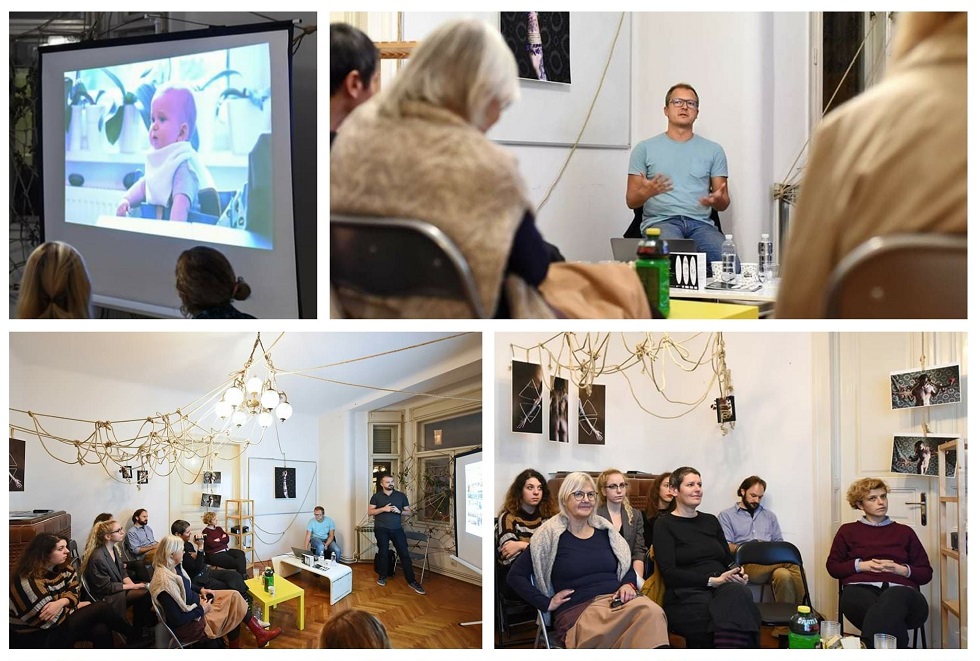
Founding Members of Croatia Based ‘Rainbow Families’
Šegota and Kožić are among the founders of the Croatia based group “Rainbow Families,” which is modeled after similar organizations worldwide, and brings together LGBTIQ couples and individuals who have children, want to have children, or would like to learn more about the rewards and challenges of raising a family.
Members of the organization first came together in 2011 in a psychosocial support group organized by the Zagreb Pride Association, led by psychologists Iskra Pejić and Matee Popov. After completing two support group cycles, the group members continued to meet and socialize as an informal citizens' initiative. Then, they established a forum and a website. In 2017, their association was officially registered. In 2018, they published an illustrated book titled "My Rainbow Family,” which was first book in Croatia to feature children with same-sex parents. In 2019, they organized the first international conference on rainbow families called “Our Children Are Fine.” Rainbow Families regularly organizes group activities and gatherings, which continue today.
For non-traditional families in Croatia, sharing experiences with others in similar circumstances can be very rewarding and fulfilling. In Rainbow Family meetings, LGBTIQ parents, and those planning parenthood, are given the opportunity to share their experiences and get to know each other.
Full Joint Adoption by Same-Sex Couples Legal in Seventeen European Countries
Full joint adoption by same-sex couples is legal in seventeen European countries: Andorra, Austria, Belgium, Denmark, Finland, France, Germany, Iceland, Ireland, Luxembourg, Malta, the Netherlands, Norway, Portugal, Spain, Sweden and the United Kingdom. Another five: Estonia, Italy, Slovenia, San Marino and Switzerland permit stepchild adoption in which the registered partner can adopt the biological and the adopted child of his or her partner in some cases. In Croatia, a life partner may become a partner-guardian over their partner's child, which is somewhat comparable to stepchild adoption. The new policy in Croatia follows that of Greece in which same-sex couples in a civil partnership may become foster, but not adoptive, parents.
Follow our Politics page for more information on LGBTIQ rights in Croatia.
Ninth Edition of Split Pride Taking Place This Weekend!
June the 11th, 2019 - As the ninth Split Pride is taking place this weekend, on June the 15th, this article will take a look into some of the activities the LGBT centre Split is doing as part of the preparations for Split Pride.
The Split Pride participants will gather in Đardin, the event will begin at 18:00, and the route is: Ulica kralja Tomislava, Marmontova, Kino Karaman., Zadarska, Pjaca, Riva, Hrvojeva and back to Đardin.
The participants also include drummers from Klapa Klapa and vouge dancers who will entertain the participants and spectators. The After party will take place in Đardin with DJ's, stands, a bar and performances until 22.00 and then the party moves to Kocka.
TCN had a chat with Mirta and Nikolina from Split's LGBT centre, and they gave us some additional information on preparation for Split Pride. They have a lot of activities to handle before each Pride takes place, and this year they have multiple volunteers for several events. They need to work on collecting donations and have volunteers who are helping with preparations for 2019's Split Pride, as well as DJ's, designers, and videographers.
.jpg)
This year, they engaged a sociologist who created a survey for the event, while Kocka and Kino klub Split are always there to borrow sound system equipment from. The Rišpet Association offers space for all of Split Pride's activities while the Domine Association is there to help with additional equipment and advice. The LGBT centre has support from several cafes and bars who are willing to host their events or at least have a donation box at the bar.
Nikolina said that they usually start with preparations at the very beginning of the year, and then regularly meet to make sure everything comes together and works. They usually have a budget of zero, but are armed with several enthusiastic volunteers.
To include the local community as much as possible, they create several events before Split Pride, like pub quizzes, day trips, workshops, exhibitions, and similar things. Split Pride itself doesn’t have a lot of participants, but most of the donations did come from the local community. Nikolina emphasised that one of the most significant issues for Split Pride is facing a lack of participants on the day of the event – for one reason only, typically, Split locals don’t take part in protests and similar demonstrations, and on top of that, Split's local LGBTIQ community often avoids coming to events like this, even though they’re obviously supportive.
.jpg)
She has estimated there are approximately 3000 non-heterosexual people in Split, while just a few participate in Split Pride. Most of them don’t come because they’re afraid of what other people will say about them in Split, despite the fact Split Pride takes place to protest against such prejudice.
Specific events the LGBT centre has organised this year have been several pub quizzes, an exhibition in the LGBT centre, movie nights, different workshops, and a barbeque night. These events helped inform the public about LGBT centre's activities, and also saw donation collections take place.
From the donation money, Split Pride pays for its promotional material, organisation, and so forth. One of the interesting events before Split Pride took place at the of May was called Kvi(r)z, which is a themed quiz related to general knowledge, as well as a music quiz but related to the LGBT community.
.jpg)
The idea came to Daniel and Zlatko as they were a team participating last year in Chillton's pub quizzes. The quiz participants could, from time to time, create their themed quiz and that’s how they created Kvi(r)z, and it was held in June 2018. Kvi(r)z was first quiz in Split and probably the first one in Croatia to have general knowledge questions but related to people connected with queer culture. This quiz covers general knowledge questions related to science, history, politics, culture, art, film, music, sport, comics and the questions themselves are specifically related to individuals who are or were part of LGBT community, or who were/are related to it.
The idea behind is to motivate the public to make an event for amateur pub quiz goers. Daniel and Zlatko took months to create all of the quiz's questions, but now they have enough information to host a few more quizzes. They’re planning to possibly have another quiz this autumn as everyone who participated in this quiz had a great time and learned something new.
.jpg)
The LGBT centre also has permanent psychological counselling for local LGBT youth, and one of the plans is to launch a radio show for the LGBTIQ community and renovate the space where they're currently based. As they say: Pride is a celebration of differences and protest against prejudice. Split Pride is, as the people of Split say “dišpet”.
For all additional information on the activities of the LGBT centre in Split, check out their Facebook page.
Follow our dedicated lifestyle page for more. If it's just Split and central Dalmatia you're interested in, give Total Split a follow.


